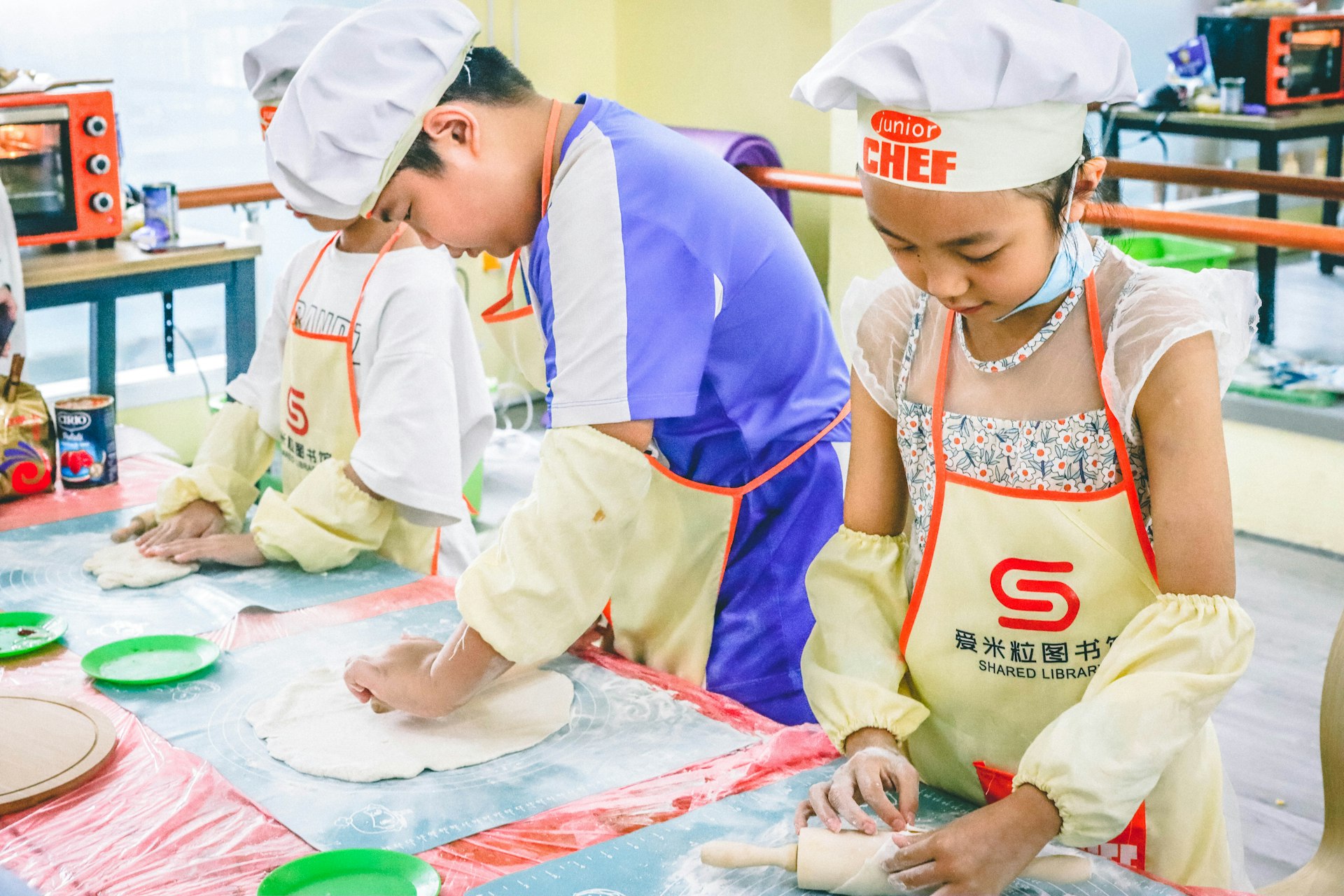How Volunteering Can Transform Your Lifestyle and Bring Meaning to Everyday Life

Photo by Liza Piterymova on Unsplash
Introduction: Why Volunteering Matters for Meaningful Living
In today’s fast-paced world, many people search for ways to live with more purpose, satisfaction, and connection. Volunteering provides a unique path to a meaningful lifestyle, offering benefits that extend beyond helping others. Whether you’re seeking to improve your health, expand your skills, or find new direction, engaging in volunteer work can be a transformative experience. This article explores the importance of volunteering in building a fulfilling life, supported by research, real-world examples, and actionable guidance for getting started.
Volunteering as a Path to Purpose and Well-Being
One of the most powerful impacts of volunteering is its ability to give life a sense of purpose and meaning. Studies show that those who volunteer regularly often report greater life satisfaction and happiness. For example, a sense of purpose is closely linked to improved overall health and a longer lifespan. Volunteering allows individuals to contribute to something bigger than themselves, reinforcing their value and significance in the community [1] . This is especially vital during periods of transition, such as retirement, when people may seek new ways to stay engaged and fulfilled.
Real-world stories abound: retirees who mentor young people, professionals who support local animal shelters, or students who help with environmental clean-up projects. Each finds renewed gratitude, satisfaction, and meaning through their service. The act of giving back not only helps others but cultivates a sense of gratitude and self-worth that enriches the volunteer’s own life [3] .
Health and Mental Health Benefits
Research consistently highlights the health benefits of volunteering. Engaging in meaningful service can:
- Reduce stress and alleviate feelings of depression
- Boost happiness and overall life satisfaction
- Lower the risk of chronic diseases such as high blood pressure and heart disease
- Enhance cognitive function and reduce the risk of cognitive decline
For instance, volunteering promotes physical activity-whether you’re organizing community events, leading outdoor activities, or assisting at local food banks [1] . Social interaction, which is inherent to volunteering, is another key factor in mental health. Regular contact with others helps build strong support systems, combating loneliness and depression [3] .
To apply these benefits in your own life, consider your interests and available time. Even small commitments-such as a few hours per month-can make a real difference. If you are unsure where to start, contact local community centers, hospitals, or faith-based organizations to inquire about volunteer opportunities. Many offer flexible schedules and training for new volunteers.
Building Skills and Advancing Your Career
Volunteering is also a practical way to develop new skills and advance your career. Through volunteer work, individuals practice vital workplace skills such as teamwork, communication, project management, and problem-solving. Many organizations provide training, allowing volunteers to build experience in areas such as crisis counseling, event planning, or public speaking [4] .
For those considering a career change, volunteering offers a low-risk way to explore new fields. For example, if you are interested in healthcare, volunteering at a hospital or nursing home can provide firsthand experience and valuable connections. Likewise, those with established careers can use their expertise to support causes they care about-such as marketing professionals leading awareness campaigns for nonprofits.
If you want to use volunteering as a career stepping stone, start by identifying organizations in your field of interest. Reach out to them directly or search for opportunities on well-established platforms such as VolunteerMatch or Idealist (visit their official websites for current listings). Remember to update your resume with your volunteer experiences and highlight the skills developed through service.
Strengthening Community Connections and Social Networks
Volunteering is a powerful way to connect with others and foster a sense of community. By working alongside people with shared values, you can build supportive networks and lasting friendships. Many individuals report finding a “second family” through volunteer activities [2] .
These social connections contribute to resilience and emotional support in all areas of life. For example, joining a neighborhood clean-up or volunteering at a local food bank helps you meet people with similar interests while contributing to a shared goal. Over time, these relationships can provide personal and professional opportunities, guidance, and support.
To strengthen your own community ties, explore volunteer options that match your passions-whether that’s working with children, supporting animal shelters, or helping at food banks. You can find opportunities by checking with local government agencies, nonprofit organizations, or community bulletin boards. If you’re not sure where to look, consider searching for “volunteer opportunities near me” along with your city or interest area.
Practical Steps for Getting Started with Volunteering
Making volunteering a meaningful part of your lifestyle doesn’t require a huge time commitment or special skills. Here’s how you can begin:
-
Reflect on Your Interests and Goals:
Think about causes that matter to you and the skills you’d like to develop. -
Research Local Organizations:
Use official websites of organizations such as the American Red Cross, Habitat for Humanity, or local hospitals to find real opportunities. Always verify the organization’s legitimacy before committing. -
Start Small:
Commit to a manageable amount of time-such as one afternoon per month-and gradually increase as your schedule allows. -
Reach Out Directly:
Many organizations welcome inquiries from prospective volunteers. Contact them by phone or email, and ask about their volunteer needs and application process. -
Be Open to Training:
Most groups offer training or orientation sessions to help you get started. Take advantage of these to build confidence and skills. -
Stay Flexible:
If your first experience isn’t the right fit, try another organization or role. Volunteering is about finding the right match for your interests and availability.
If you are looking for specific volunteer opportunities, you can search for “volunteer opportunities” along with your city or area of interest. Alternatively, contact your local United Way chapter, community foundation, or search for programs through your city government’s official website. If you are a student, many schools and universities have dedicated volunteer coordinators who can help you connect with causes and organizations.
Overcoming Common Challenges and Finding Alternative Approaches
Some people hesitate to volunteer due to time constraints, uncertainty about where to start, or concerns about skill requirements. If you are busy or have limited mobility, consider remote or micro-volunteering, which allows you to contribute from home in small increments of time. Examples include virtual mentoring, helping with administrative tasks, or providing technical support for nonprofits.
Another challenge is finding the right fit. Not every opportunity will align with your interests or schedule. Be patient and keep exploring until you discover a role that feels rewarding. Remember that even occasional volunteering-such as helping at a one-time event-makes a positive impact.
For those who prefer structured roles, many national organizations offer formal volunteer programs with clear expectations and support. If you want to make a difference at a local level, reach out to neighborhood associations, food banks, or animal shelters. You might also consider starting your own community project or joining a civic group focused on issues you care about.
Key Takeaways: Making Volunteering Part of a Meaningful Lifestyle
Volunteering is a proven way to enrich your life, improve your well-being, and give back to your community. By offering your time and talents, you cultivate a sense of purpose, build new relationships, and develop valuable skills. The benefits extend to every stage of life-whether you’re a student seeking direction, a professional looking to give back, or a retiree searching for new meaning.
Remember, you don’t need to make a massive commitment to see the benefits. Start with small steps, stay open to new experiences, and focus on causes that resonate with you. For more information on verified opportunities and guidance, visit established nonprofit organizations, check with your local government’s official website, or consult community centers and schools. Volunteering isn’t just about helping others-it’s about discovering a more meaningful way to live every day.

Photo by Raelle Gann-Owens on Unsplash
References
- [1] Tahoe Forest Health System (2023). Health benefits of volunteering: Live longer and thrive.
- [2] Midwest Food Bank (2024). 10 Life-Changing Benefits of Volunteering.
- [3] HelpGuide.org (2024). Volunteering and its Surprising Benefits.
- [4] Western Connecticut State University (2024). Community Engagement – Benefits of Community Service.
MORE FROM todayhiring.us













